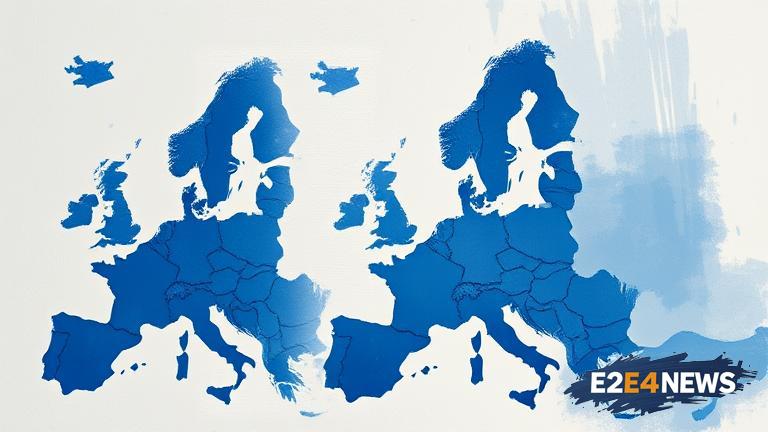The European Union has launched an ambitious €150 billion defence plan, aiming to enhance its military capabilities and strengthen its position on the global stage. This initiative has sparked interest among non-EU firms, which are eager to explore potential collaboration opportunities. To tap into this massive funding, non-EU companies must navigate the EU’s complex regulatory framework and meet specific requirements. One of the key conditions is to demonstrate a strong presence in the EU, either through subsidiaries or partnerships with EU-based companies. Additionally, non-EU firms must comply with EU laws and regulations, including those related to data protection, intellectual property, and export controls. The EU’s defence plan focuses on several key areas, including research and development, capability development, and procurement. Non-EU firms can contribute to these areas by offering innovative solutions, expertise, and technologies. For instance, companies specializing in artificial intelligence, cybersecurity, and drone technology can find opportunities in the EU’s defence sector. Moreover, the EU’s defence plan emphasizes the importance of collaboration and cooperation among member states, as well as with non-EU partners. This creates opportunities for non-EU firms to engage in joint research and development projects, share best practices, and participate in procurement processes. However, non-EU firms must also be aware of the potential risks and challenges associated with collaborating with the EU. These include ensuring compliance with EU regulations, managing intellectual property rights, and navigating the complexities of EU procurement procedures. Despite these challenges, many non-EU firms are already exploring opportunities in the EU’s defence sector. For example, several US-based companies have established partnerships with EU-based firms to develop innovative defence technologies. Similarly, companies from other non-EU countries, such as Japan and South Korea, are also seeking to collaborate with EU partners. The EU’s defence plan has also sparked interest among non-EU countries, which are eager to strengthen their relationships with the EU and enhance their own defence capabilities. In response to this interest, the EU has established several initiatives aimed at promoting cooperation and collaboration with non-EU partners. These initiatives include the Permanent Structured Cooperation (PESCO) framework, which enables non-EU countries to participate in EU defence projects, and the European Defence Fund, which provides funding for research and development projects. Overall, the EU’s €150 billion defence plan offers significant opportunities for non-EU firms to collaborate and innovate, but it requires careful navigation of the EU’s regulatory framework and a deep understanding of the EU’s defence priorities. By demonstrating a strong presence in the EU, complying with EU regulations, and offering innovative solutions, non-EU firms can unlock the potential of the EU’s defence plan and contribute to the development of a stronger and more capable European defence sector. The EU’s defence plan is expected to have a significant impact on the global defence industry, with potential benefits including increased collaboration, innovation, and competitiveness. However, it also raises important questions about the future of European defence, including the role of non-EU countries and the potential risks and challenges associated with collaboration. As the EU continues to develop its defence plan, it is likely that non-EU firms will play an increasingly important role in shaping the future of European defence. With the EU’s defence plan offering significant opportunities for collaboration and innovation, non-EU firms must be prepared to navigate the complexities of the EU’s regulatory framework and demonstrate their value as partners in the development of a stronger and more capable European defence sector.
